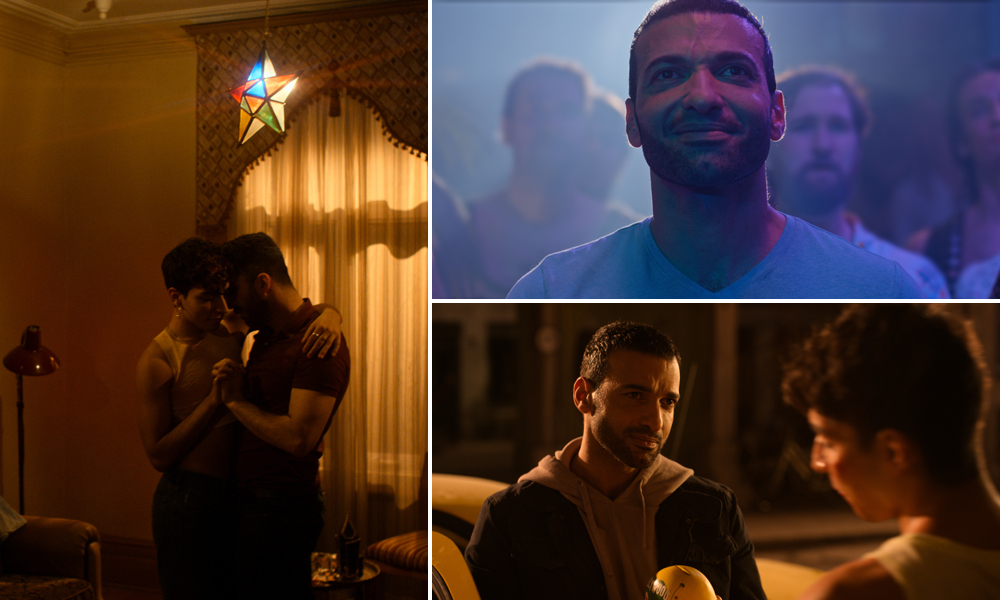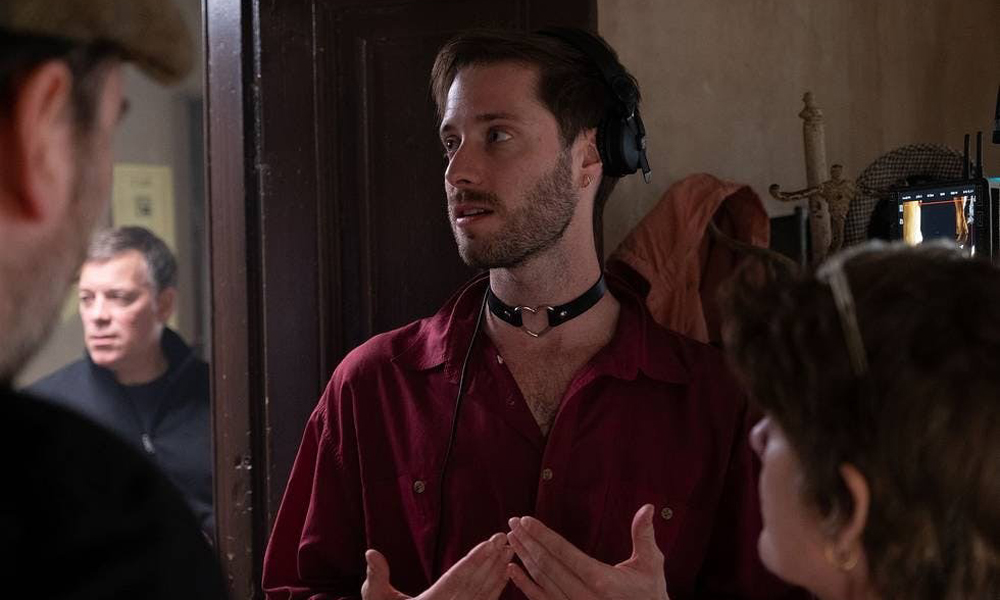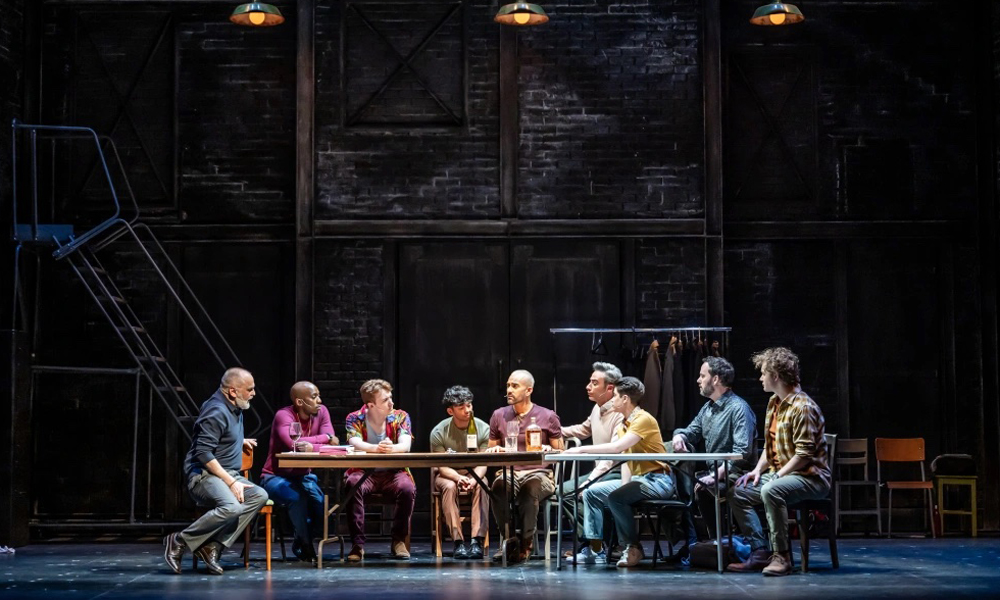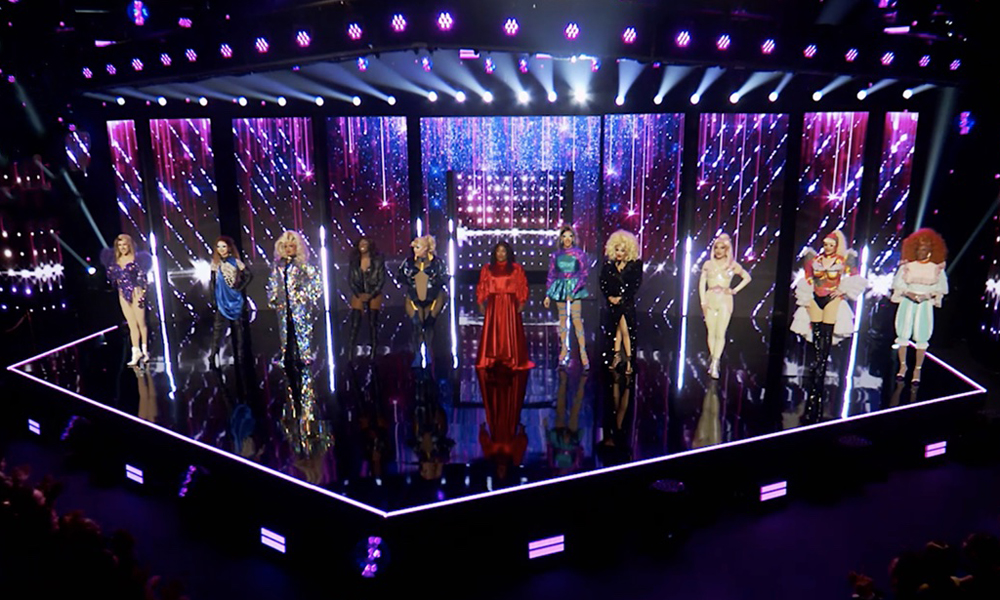The Canadian director discusses how he helped bring a gay Syrian’s story to life for Apple’s new TV show…
By Christopher Turner
In January, Apple released its highly anticipated original series Little America, the first scripted series on Apple TV+’s 2020 slate, which counts The Big Sick writers Kumail Nanjiani and Emily V. Gordon among its executive producers. Inspired by the true stories originally featured in Epic Magazine, Little America goes beyond the headlines with eight relatable, emotional journeys about the experience of immigrating and living in the United States of America.
To say the series has been a success and a launching pad for conversations on America’s messy immigration system is an understatement, which is why it’s not surprising that Apple has already committed to a second season.
Every episode is an excellent half-hour of television exploring immigrant stories of overcoming or confronting insurmountable hardships. One of the most powerful stories is the final episode of Season 1, “The Son,” which tells the story of a gay man named Rafiq (Haaz Sleiman) who lives in the Syrian village of Qardha, and is forced to flee Syria amid his family’s disapproval.
In the episode, Rafiq’s father Bassam (Igal Naor) catches him kissing another man in an alley and scalds the flesh of Rafiq’s arm – something that Bassam explains is an act of mercy. Rafiq flees to Damascus, where he befriends Zain (Adam Ali), a flamboyant young gay man who loves Kelly Clarkson. Zain helps Rafiq accept himself and ultimately advises him to seek asylum in America, but before Rafiq can take that advice, his brother tracks him down and in a homophobic rage smashes up the restaurant that Rafiq and Zain work at. the pair work at.
“The Son,” like the other installments of Little America, is based on the true story of Shadi Ismail, a gay man who fled Syria due to persecution, going first to Jordan and ultimately finding asylum in Boise, Idaho. His journey was adapted from Epic Magazine by Canadian-born writer Stephen Dunn (whose brilliant feature film debut Closet Monster in 2015 made international headlines) and Iraqi-born Amrou Al-Kadhi, a non-binary writer and drag performer. Dunn also directed the episode.
IN recently had the chance to sit down with Dunn to talk about the episode and how it came together, plus queer storytelling, Kelly Clarkson…and the upcoming Queer As Folk reboot!
Tell us how the project came about.
I was working with Lee Eisenberg on Queer As Folk when he told me he wanted to do a queer episode of Little America. He shared the true story of Shadi Ismail, which I thought was so beautiful. I instantly thought about my good friend and co-writer Amrou Al-Kadhi. I shared the story with Amrou; we had very similar connections to the material, and very organically launched into writing the episode.
How did the two of you work together in writing the script?
Funny enough, it was a very international affair! Amrou is based in the UK and I wrote entirely out of Canada. We would collaborate virtually and send drafts back and forth.
Did you connect with the real “Rafiq”/Shadi during the process?
We were given Shadi’s article recounting his experience immigrating from Syria to the US and conducted some interviews [with him] through the magazine, but we never actually met him in person until the Little Americapremiere in Los Angeles. That being said, Amrou and I had a very personal connection to the material, and there’s a little bit of our experiences in there as well.
How did your own experiences influence “The Son?”
Although we come from very different cultural backgrounds, Amrou and I approached this episode organically, based on our own experiences as queer folks who have been forced to rebuild our lives due to rejection by our families. Although this episode is very unique to the queer Arab experience, there is something so universal and human about Shadi’s story that is relatable no matter your background.
What was the biggest surprise to you in researching Syrian culture and immigration in general?
The biggest surprise for me came when Amrou explained the potential reason behind Shadi’s father burning him as punishment for being gay. I think it’s very easy for a lot of Western folk to hear this story and write it off as a barbaric act of violence without fully understanding the cultural implications. Amrou explained to me that in Islam you’re taught that being gay means that you will go to hell – not only you, but it also damns your mother. The act of burning comes from a place of fear and protection to illustrate that this is what hell could feel like, but for all eternity.

Al-Kadhi recently said on Twitter that “The Son” has been banned in 11 countries. Can I grab your thoughts on that? Does it push or discourage you from telling more stories like this?
It’s upsetting that this episode cannot be viewed everywhere Apple TV+ is available. We’re working hard to make it available where we can. We expected pushback and challenges in getting this story out there, and I feel like the global response is a sign of its cultural importance right now. I feel that some of these regions where “The Son” is currently not available are some of the places that need this episode the most. This has only made us more impassioned to make sure it reaches these communities. I think everyone should be able to have access to this episode.
You were also behind the lens for “The Son.” What challenges did you have in switching from co-writer to director?
With most projects I’ve directed, I’ve also been a writer. While it was familiar territory, it never makes it any easier. This was also my first TV opportunity. Working on a show that was shot over eight days in Montreal – but set in Syria, Jordan and Boise, Idaho – was a big challenge. Thankfully I had an amazing cast, crew and team of consultants who helped create this world with authenticity.
Favourite Kelly Clarkson song?
“Break Away,” hands down, but especially when it’s lip synced by Chi Chi DeVayne.
These stories center around immigration in the US…Do you think they will resonate differently with a Canadian audience?
The exciting thing about Little America is that it offers a glimpse into the lives of people from completely different cultures and personal situations. For some audiences, it might be their first exposure to an undocumented immigrant or an Indian family running a motel in Utah, but when it comes down to it, as Kumail [co-executive-producer Kumail Nanjiani] said beautifully, this series tells stories that feature immigrants; it’s not an immigrant story. It doesn’t matter if you’re in America or Canada or South Africa, each human story is universally relatable, and I think that’s the entire purpose of this show.
And, finally…as a fan of the original UK and US versions of Queer as Folk, I have to ask about the reboot. Is there anything you can tell us?
Unfortunately, my lips are sealed right now, but it is going very well and we’re very happy to be developing it on NBC/Universal’s new streamer, Peacock. I mean, come on, can you imagine Queer As Folk on a network with a more apropos name? This was a very influential show for me growing up, so I hope we’re able to do the same for the next generation.
Every episode of Little America is now streaming on Apple TV+.
CHRISTOPHER TURNER acted as guest editor for this issue of IN Magazine. He is a Toronto-based writer, editor and lifelong fashionisto with a passion for pop culture and sneakers. Follow him on social media at @Turnstylin.






POST A COMMENT